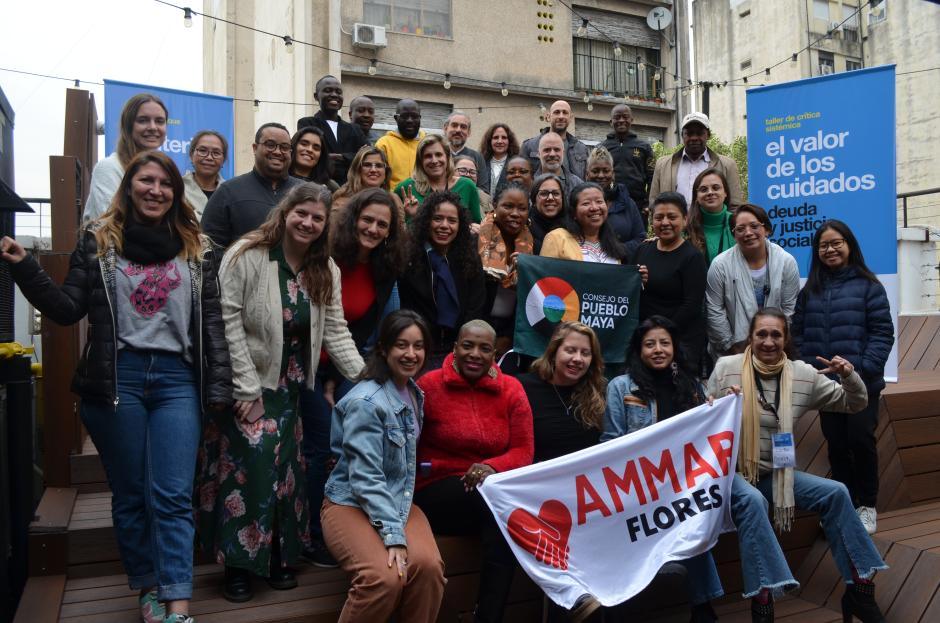The first in-person workshop on community-led research design concerning loss and damage (L&D) resulting of climate change took place in Nakuru, Kenya, from 28 August to 2 September 2023. The event brought together six social movements, Indigenous Peoples’ organizations, and grassroots groups from Colombia, Mexico, Mongolia, Nigeria, Zimbabwe, and Kenya. It focused on developing research strategies, understanding human rights perspectives, and fostering community resilience.
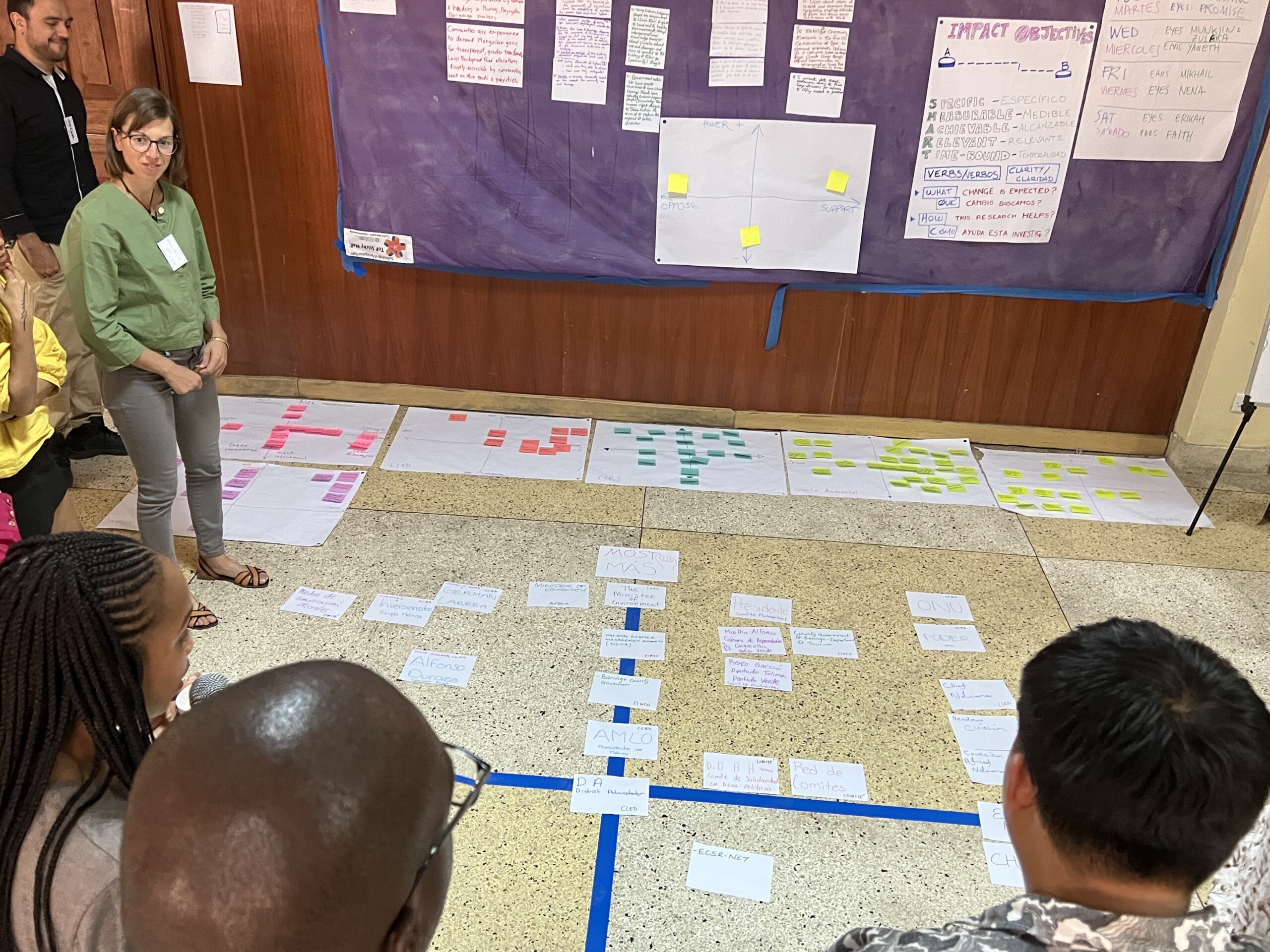
A significant part of the workshop explored L&D from a human rights perspective, emphasizing states’ obligations in addressing climate change impacts. Participants discussed the goals they hoped to achieve through their research, both individually and collectively. This was followed by power mapping sessions to identify key targets at local, national, and global levels, crucial for effective advocacy.
The workshop also focused on facilitating participatory action research processes, addressing power imbalances, obtaining consent, and centering care and healing in research practices. Participants were introduced to various research methods, including community-led surveys, collective storytelling, and community mapping, through hands-on sessions that provided practical skills and insights.
An integral part of the workshop was a solidarity visit to Endorois ancestral land in Lake Bogoria. Participants learned about the Endorois struggle. After 14 years, the Kenyan government continues to deny the Endorois Peoples’ return to their ancestral home and reparations for their forced eviction recognized by the African Commission on Human and Peoples’ Rights.
The final sessions introduced participants to data analysis, transitioning from data collection to developing research outputs. Practical aspects of research planning, including budgeting, setting timelines, and establishing milestones for their projects, were also covered.
This workshop aimed to disrupt the power dynamics that result in the exclusion and marginalization of communities. Through the Participatory Action Research (PAR) methodology, this initiative actively involved communities in exploring climate-induced losses and damages. Additionally, it sought to strengthen popular education and movement building, supporting claims for justice, reparations, and accountability. By challenging dominant narratives around loss and damage, such as market-driven solutions promoted by corporate actors and allied governments, the workshop aimed to promote alternative knowledge that centers on the agency and experiences of Indigenous and local communities and their solutions for environmental protection.

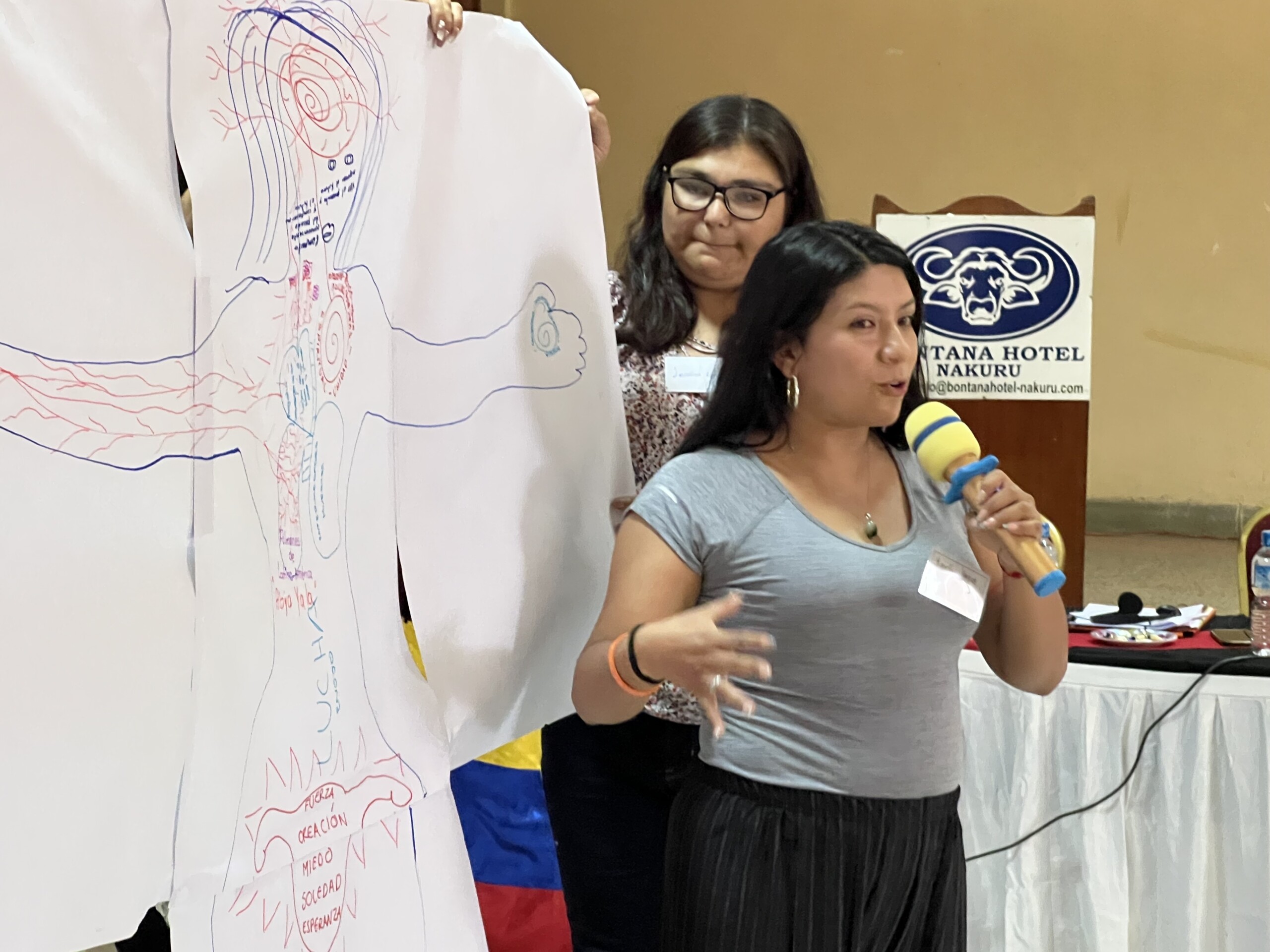
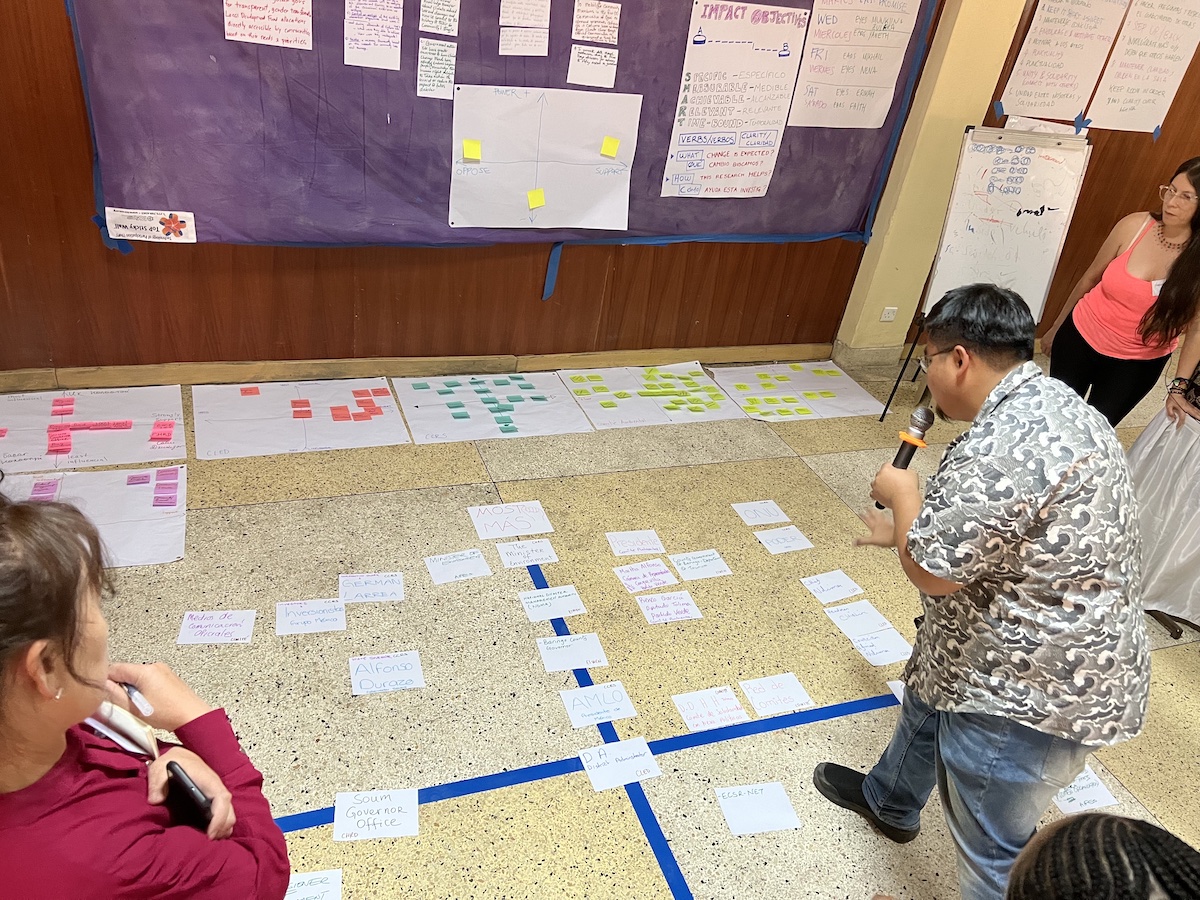
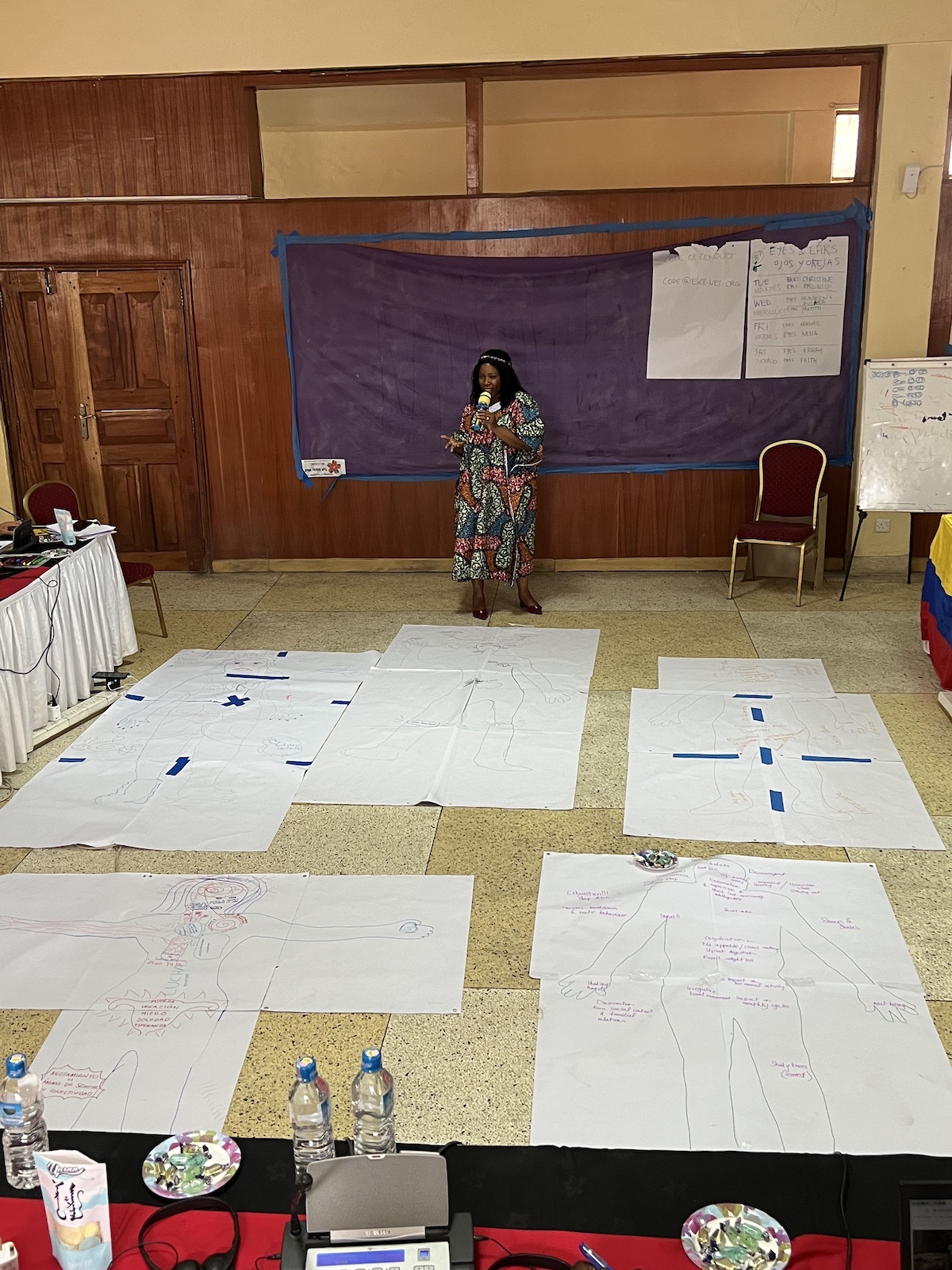
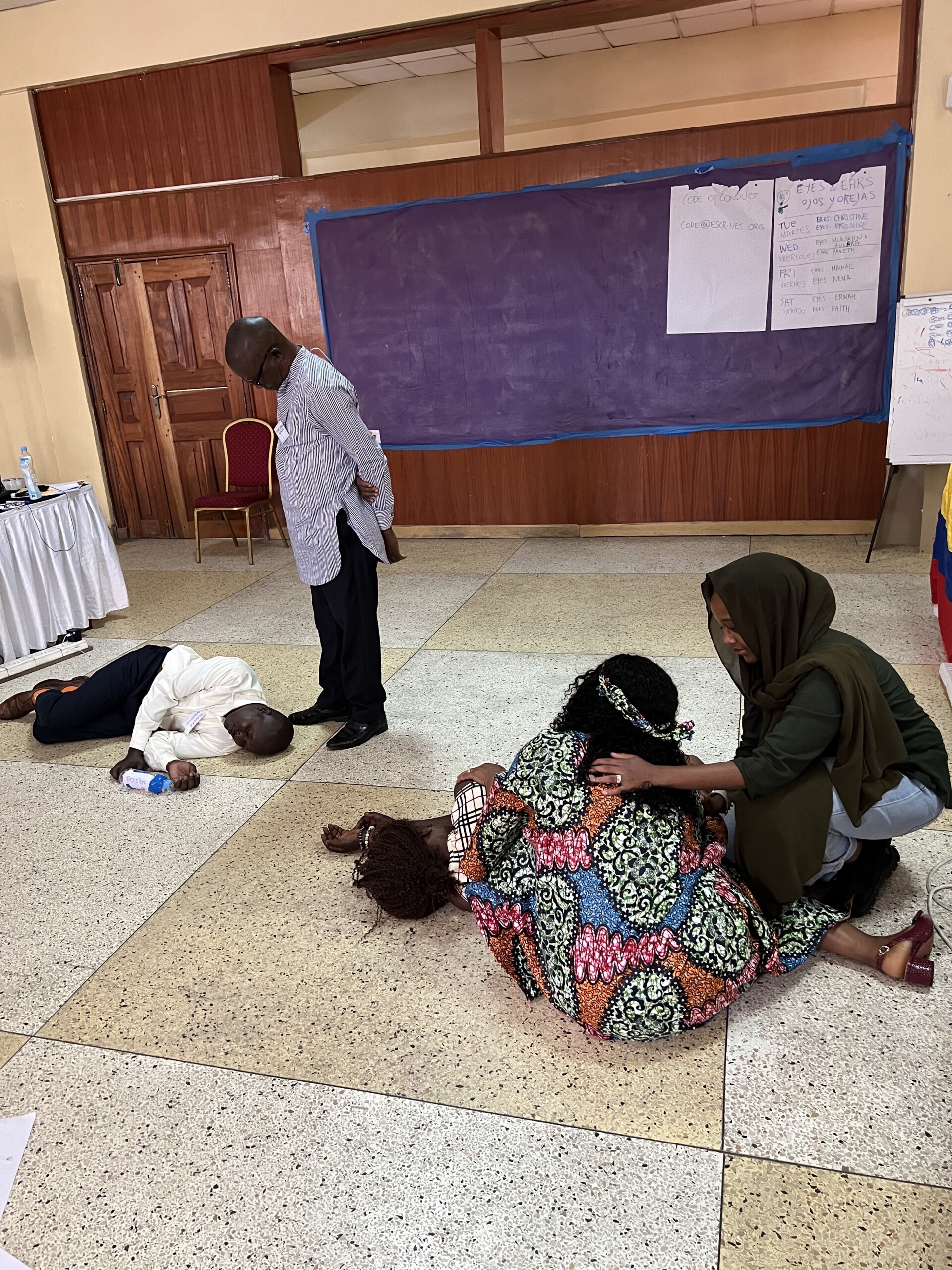
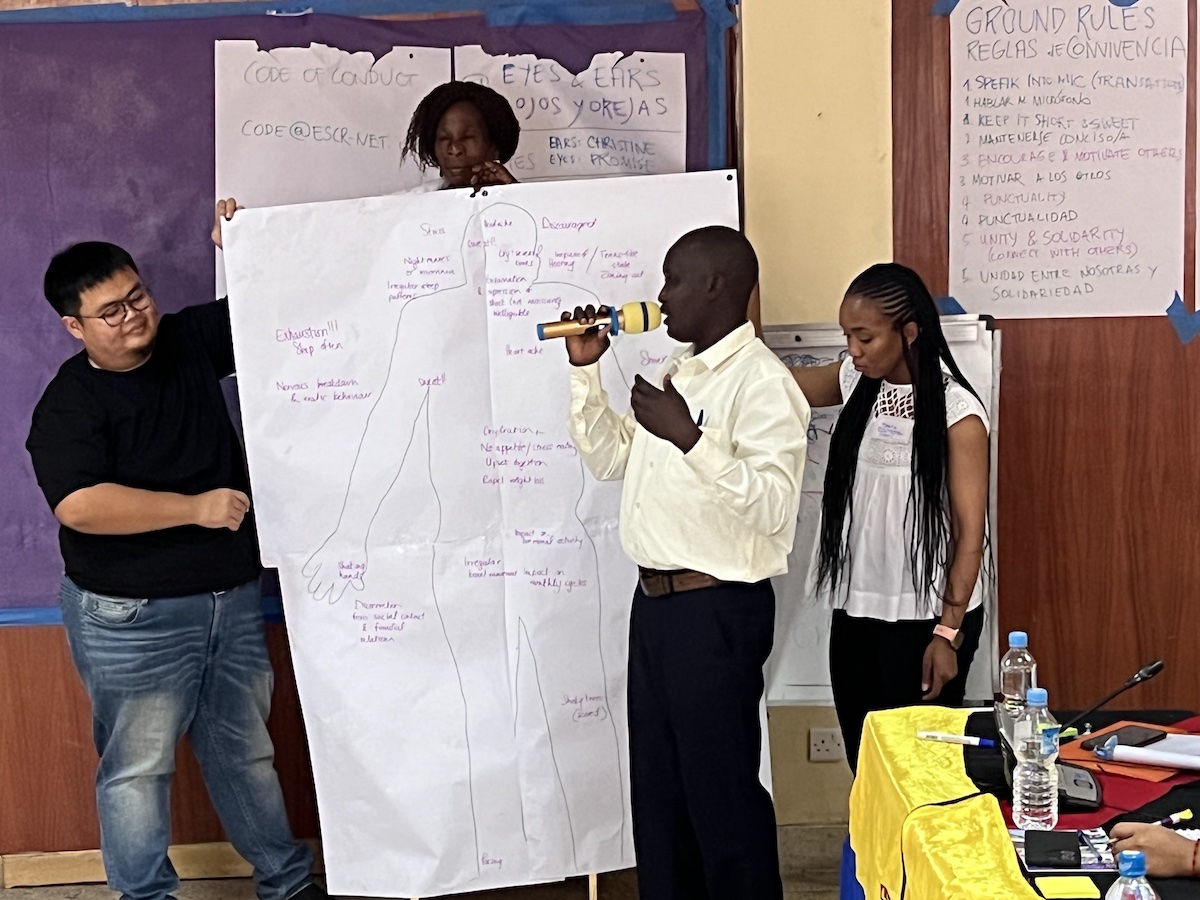
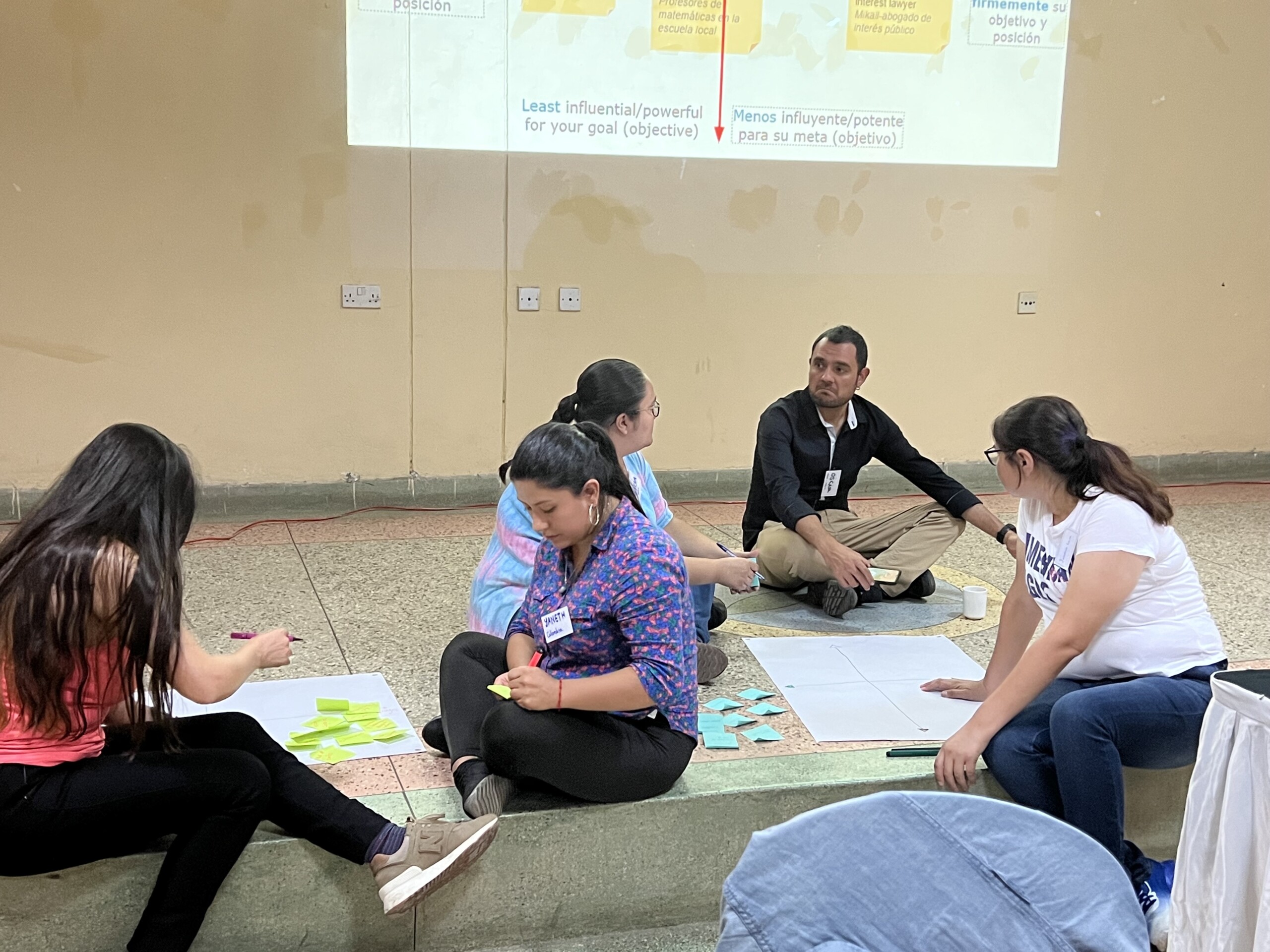


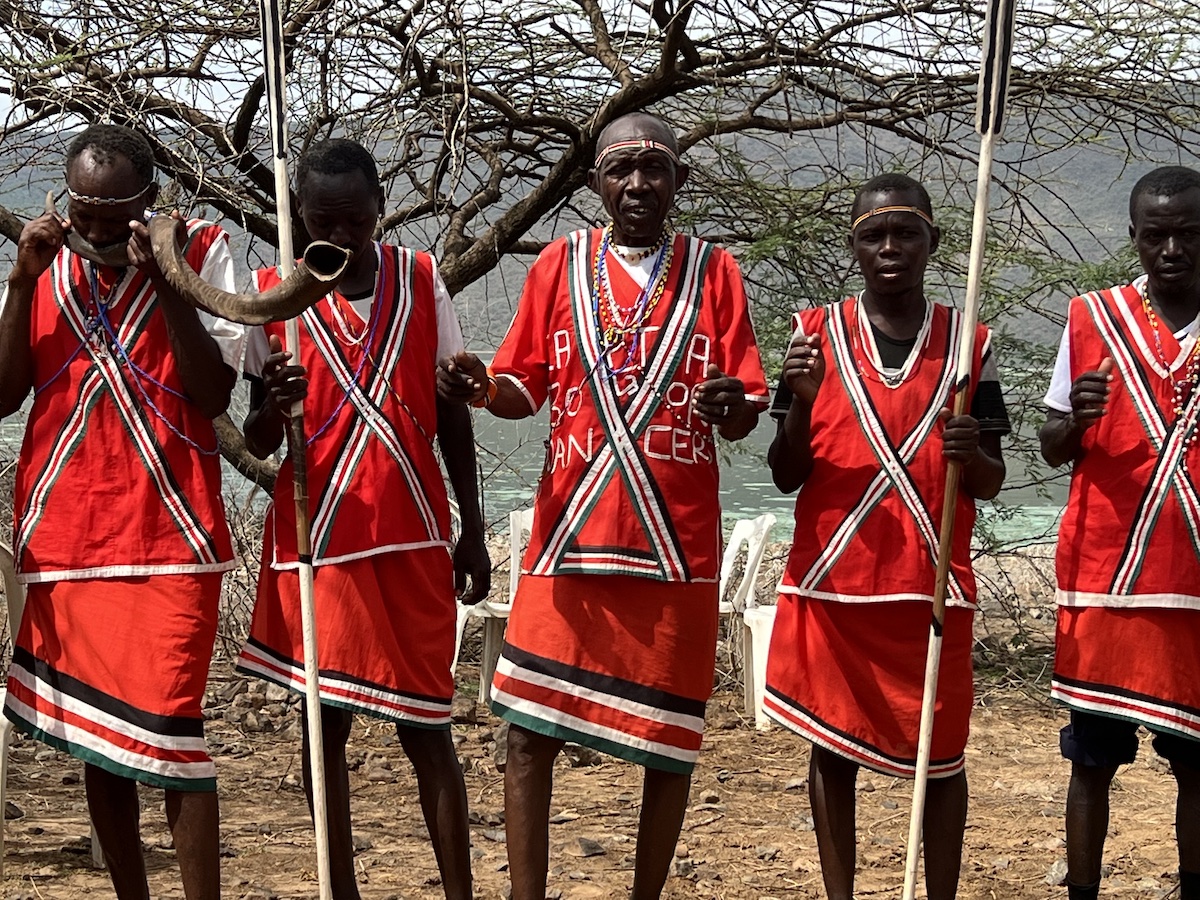

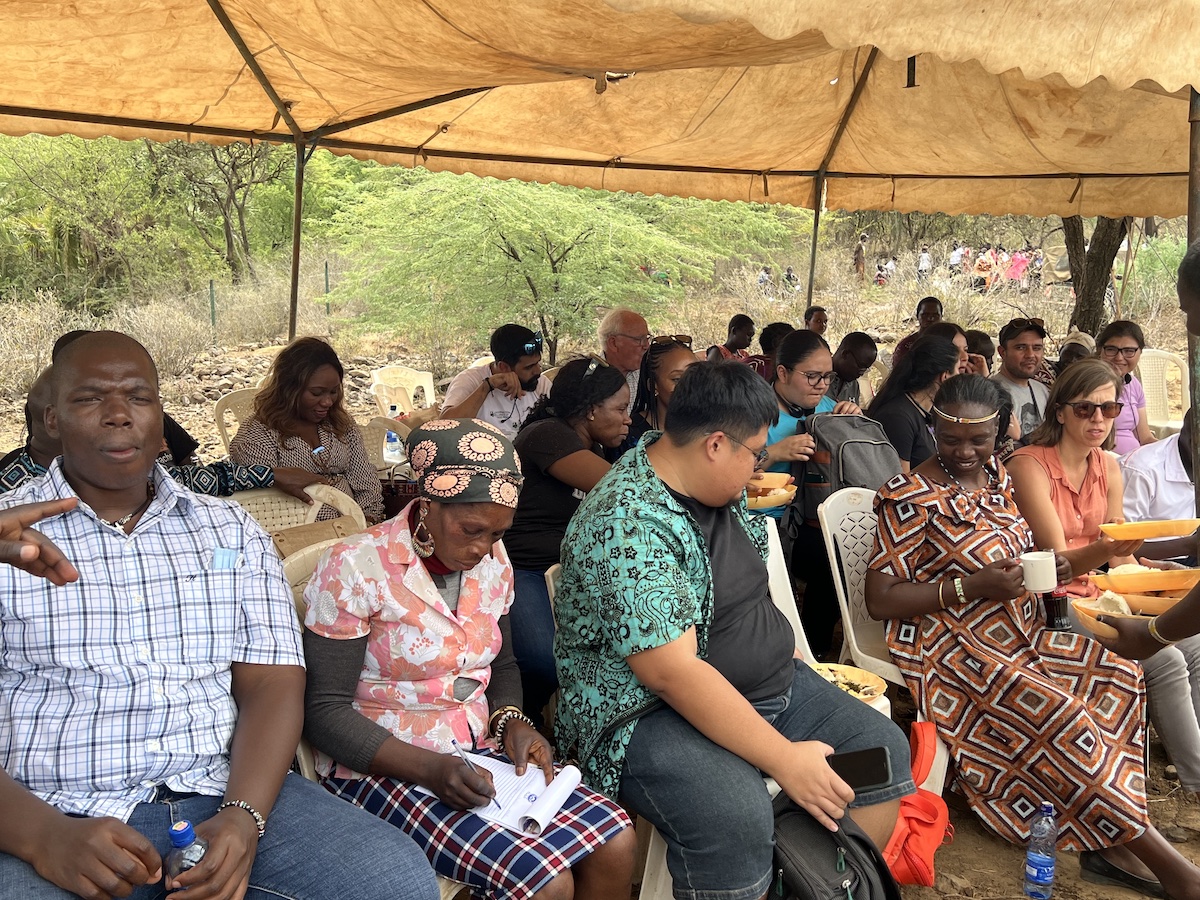
- This was the first workshop of an 18-month process in which the participating groups will undertake a comprehensive approach that includes identifying research questions, developing methodologies and tools, conducting field research, analyzing data, and developing advocacy strategies and outputs relevant to community struggles.
- During the 5-day workshop, participating groups were introduced to different methodologies.
- The research is guided by a diverse advisory group of members with experience in community-led research.
- Participants were introduced to various research methods, including community-led surveys, collective storytelling, and community mapping, through hands-on sessions that provided practical skills and insights.
- In the picture, one group is representing the impact of climate change in their community using the Theater of the Oppressed technique.
- Another group presenting a body map of the impact of loss and damage resulting the climate change to the individuals and communities.
- Each participating group will develop specific, context-relevant research questions and methods aligned with their advocacy or campaign goals.
- Participants of the Community-led research project on loss and damage during the solidarity visit to the Endorois' ancestral home in Lake Bogoria.
- Endorois elders chatting in their ancestral land in Lake Bogoria, Kenya. After 14 years, the Kenyan government continues to deny the Endorois people's return to their ancestral home and reparations for their forced eviction, as recognized by the African Commission on Human and Peoples’ Rights.
- For the Endorois, the land around Lake Bogoria is their ancestral home which provided them green pasture, ample clean drinking water, medicinal salt licks for their cattle, traditional herbal medicines, practiced bee-keeping activities and where they performed important rituals and ceremonies such as circumcisions, burials, children's naming ceremonies and other rituals related to their ancestors.
- Participants of the Community-led research project on loss and damage during the solidarity visit to the Endorois' ancestral home in Lake Bogoria, Kenya, in September 2023.
- Participants of the Community-led research project on loss and damage during the solidarity visit to the Endorois' ancestral home in Lake Bogoria, Kenya, in September 2023.
The six social movements, Indigenous Peoples’ organizations, and grassroots groups selected to participate in this research project were:
- Comité Ambiental en Defensa de la Vida, Colombia
- Comités de Cuenca de Rio Sonora, Mexico
- Rural Women’s Federation – organized by the Centre for Human Rights and Development, Mongolia
- African Indigenous Foundation for Energy and Sustainable Development, Nigeria
- Chimanimani Land and Environment Defenders, Zimbabwe
- Endorois Indigenous Women Empowerment Network, Kenya
The advisory group facilitating the workshop included:
- Mela Chiponda (individual member, Zimbabwe)
- Oscar Pineda (PODER, Mexico)
- Radiatu Sheriff Kahnplaye (Natural Resource Women Platform, Liberia)
- Samuel Olando (Pamoja Trust, Kenya)
- Thato Masiangoako (Socio-Economic Rights Institute, South Africa)
- Tom Weerachat (IAP, Thailand)
- Allison Corkery (Center for Social and Economic Rights, US)
- Countries
- Initiatives
- Issues
- News Categories
- Regions
- Working Groups
- Members
- Comité Ambiental en Defensa de la Vida
Centre for Human Rights and Development - Mongolia (CHRD-Mongolia)
African Indigenous Foundation for Energy and Sustainable Development (AIFES)
Endorois Indigenous Women Empowerment Network
International Accountability Project (IAP)
Project on Organizing, Development, Education, and Research (PODER)
Natural Resource Women Platform
Asia Pacific Forum on Women, Law and Development (APWLD)
Pamoja Trust
Socio-Economic Rights Institute of South Africa (SERI)
Center for Economic and Social Rights (CESR)
- Comité Ambiental en Defensa de la Vida

